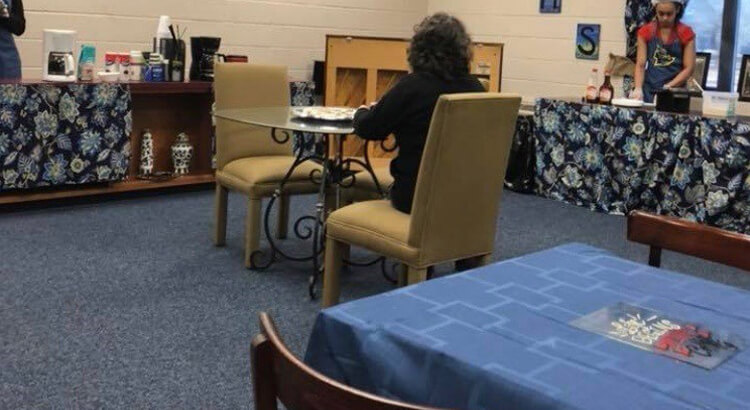This is part of a series of posts from nominees for our LifeChanger of the Year educator recognition program. We meet scores of fascinating LifeChangers every year who have interesting perspectives to share about children, education and life.
Rigor and Relevance are key to Effective Instruction.
Always be consistent.
Courses must move at the same pace.
You must differentiate so that all learners have appropriate access to the curriculum.
Involve Your Stakeholders.
Build Relationships with Students and Their Families.
These phrases ring throughout the educational world but few of them make the educational environment meaningful, relevant, or truly accessible to students with disabilities. No, I am not saying that education should be watered down, but I am reminding each of us that education no longer is a one-size-fits-all practice. And at our school in Georgia, we found a great way to get our students involved in a very meaningful endeavor.
We as educators don’t hand pick the students that are enrolled in our classes. When we open the doors of our classrooms each fall to greet the wonderful students placed in our charge, our first task is not to jam their puzzle piece into the conceptual puzzles we have developed in our minds. Instead, we must build relationships, establish respect, and maintain credibility with all students. These deeds will guide us through the planning phases of creating instruction that truly prepares all students to be post-secondary ready.
Before you write this off as another useless article that wastes paper, provides useless opinion-based facts, and is of absolutely no use to you professionally, let’s discuss how thinking outside the box changed the lives of many students and enhanced their educational futures. This out-of-the-box thinking built an environment of trust, provided on-campus work-based learning opportunities for students with disabilities, as well as provided faculty, staff, and administration a place to have those professional dialogues across content lines that evolved the educational understanding and practices associated with dealing effectively with students with disabilities.
Jefferson County High School is a consolidated high school in central Georgia with countywide initiatives to promote reading and math, and target pockets of students that upon reviewing the data may otherwise have fallen through the cracks academically. This county proudly bases its actions on the motto of “Every Child Every Day.” Encouraging teachers to not only teach the curriculum, but think outside the box to make it resonate on a personal level with students in our Title I school.
This is exactly what happened when we incorporated the JCHS Coffee Café. Initially designed to boost morale within the building, improve the social interaction between students with disabilities and authority figures, and improve employability skills, our Café has blossomed into a gem. It rovides a connection between both students with disabilities and their non-disabled peers as well as showcases the talents of many students that have some untapped talents. This program has included Chorus, Construction, Audio Visual Technology, Visual Arts, Vocational Rehabilitation, Starbucks, East Georgia College’s CHOICE program, and every administrator, custodian, teacher, and support personnel to build a place where everyone feels welcome and included.
This year, 15 students were involved in the pilot, including students with Specific Learning Disabilities, such as autism, OHI, and mild intellectual disabilities. Instead of having the space created when the students arrived, we presented them with an empty room and a very small budget with which to create an inviting yet functional environment.
The students made curtains, painted, designed and constructed tables, raised money, shopped, and budgeted for the café inventory. They also informed the community of their new project and invited them to take part through visiting and through tax-deductible donations. The students even underwent customer service training with the manager of our local Starbucks to ready them for the situations they likely would face at the Café.
As the project progressed, the students applied for various positions within the café, opened bank accounts, received ideas and eventually became paid employees through Vocational Rehabilitation. These students not only maintained passing grades in all of their classes, clocked in and out for work, took part in inclusiveness training, learned to budget their own money, but in the end, the students with autism in were even making eye contact because of their comfort level with all that visited.
Out of the students involved this year, several are entering post-secondary institutions, 12 have community-based summer employment, and all have a stronger support base that they can count on as they transition into the community.
Learn more about Phrashundra Hudson on her LifeChanger of the Year profile.
TC100537(0418)3

